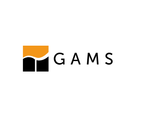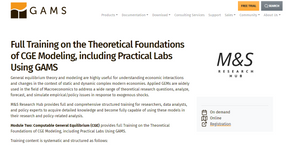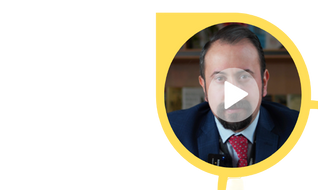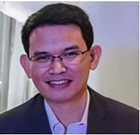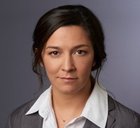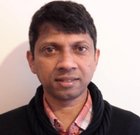General Equilibrium Macroeconomic Modeling (GEM)
CGE GTAP/ CGE GAMS / DSGE
Join M&S Research Hub-certified 80-hour GEM live training. Led by world-top experts, this immersive program covers essential concepts and practical applications to master CGE and DSGE methodologies through hands-on training using common software tools like GTAP, GAMS, Dynare, and Octave. Trainees receive a certificate upon completion.
Start your Learning Journey Today!
Training Highlights
About GEM Course
GEM training provides an immersive learning experience designed for economists, policymakers, and researchers eager to elevate their proficiency in economic modeling. Focused on two pivotal modules—Computable General Equilibrium (CGE) and Dynamic Stochastic General Equilibrium (DSGE)—this program offers a dynamic blend of theory and practical application.
Objectives
1
2
Integrate Models for Holistic Insights
Apply Insights to Real-world Scenarios
3
4
Master CGE Modeling
Navigate DSGE Dynamics
Training Modules
Register for the whole GEM program or pick one of the following 6 modules:
New
6- Advanced Dynamic Stochastic General Equilibrium (DSGE)
Explore Module here
Training Structure & Content
Module 1: Intro. Computable General Equilibrium (CGE) using GTAP/GEMPACK
"Full course on the Theoretical and Practical Foundations of CGE Modeling, using GTAP-GEMPACK"
Duration: Approx. 17 Hours (Dates: Jan., May and Sep. 2025)
Training Mode:
Normal group (7-10 trainees) and small group (2-5 trainees)
Platform: online (Zoom)
Extra benefits:
- Certified certificate after completing the training
- 10% trainee discount on future bookings
- Trainees become eligible to submit their papers at the MSR working paper series (SSRN and RePEc indexed).
- Discount of up to 10% for groups of 2 and more.
- Special training package for teams of banks/Governments/public institutes/Research centers
Training content is systematic and structured as follows:
1) CGE Model introduction
2) Production and Demand theories
3) GTAP model and database introduction
4) Modeling Nested Production functions in GEMPACK
5) Elasticities: CES, Armington calibration
6) Modeling Nested Demand functions and regional household
7) Practical CGE applications, aggregation, and simulations.
8) SAM/I-O table construction
Live Training
Snapshots
Follow our channel and see other sessions on
Understanding the power of shock and how to design a shock in GTAP
(14 Minutes)
Meet The
Moderators
Badri Narayanan is the Indian ministry lead advisor and head of trade strategic economic dialogue, head of the 2047 Indian vision unit, Asso. Prof. and advisory board member of Boston College, USA.
Sherif M. Hassan is a consultant and lead economist at UN-Habitat, Academic division director at M&S Research Hub, Former research fellow at CNMS-Marburg and Leiden Universities, and Associate professor of applied econometrics at a number of world universities.
Module 2: Linear, Non-Linear Programming and Intro to GAMS
"Full course covers the fundamentals of optimization, linear programming, integer programming, nonlinear programming, and sensitivity analysis in GAMS"
Duration: Approx. 10 Hours (Dates: April - July 2025)
Training Mode:
Normal group (7-10 trainees) and small group (2-5 trainees)
Platform: online (Zoom)
Extra benefits:
- Certified certificate after completing the training
- 10% trainee discount on future bookings
- Trainees become eligible to submit their papers at the MSR working paper series (SSRN and RePEc indexed).
- Discount of up to 10% for groups of 2 and more.
- Special training package for teams of banks/Governments/public institutes/Research centers
Training content is systematic and structured as follows:
Linear & Non-Linear Programming
Module 1: Introduction to Optimization
Module 2: Unconstrained Optimization
Module 3: Linear Programming (LP)
Module 4: Integer Programming (IP)
Module 5: Nonlinear Programming (NLP)
Module 6: Sensitivity Analysis
GAMS Practice
Module 1: Introduction to GAMS
Module 2: Problem Formulation and Mathematical Modeling
Module 3: Interpretation and Practical Application with GAMS Practice (Examples)
Module 4: Sensitivity Analysis in GAMS
Live Training
Snapshots
Follow our channel and see other sessions on
Intro. Linear Programming / CGE Modeling
(8 Minutes)
Meet The
Moderators
Vaibhav Kumar is an experienced Research Associate at the US Department of Agriculture for Forest Products Laboratory, Statistics, Life Cycle Analysis, and Economics Research
Module 3: Computable General Equilibrium (CGE) using GAMS
"Full course on the Theoretical and Practical Foundations of CGE Modeling, using GAMS"
Recommended by GAMS institute, view the announcement here
Duration: Approx. 15 hours (Dates: Feb. and August 2025)
Training Mode: Normal group (7-10 trainees) and small group (2-5 trainees)
Platform: online (Zoom)
Extra benefits:
- Certified certificate after completing the training
- 10% trainee discount on future bookings
- Trainees become eligible to submit their papers at the MSR working paper series (SSRN and RePEc indexed).
- Discount of up to 10% for groups of 2 and more.
- Special training package for teams of banks/Governments/public institutes/Research centers
Training content is systematic and structured as follows:
1) Modeling a simple economy
2)Arrow-Debreu, Cobb-Douglas and other CGE-related functions
3) Modeling the government
4) Modeling the rest of the world
5) Introduction to Dynamic CGE models
6) Modeling a simple dynamic model
7) Practical CGE applications using GAMS, aggregation, and simulations.
Live Training
Snapshots
Follow our channel and see other sessions on
Video 1: M&S Research Hub | CGE GAMS Live Training | Extending basic model by including the government
(5 Minutes)
Video 2: M&S Research Hub | CGE GAMS Live Training | Closure setting and running simulations (14 Minutes)
Meet The
Moderator
Peter Griffin is the IMF and World Bank CGE Modeler/Macroeconomic consultant, and Fiscal Policy Expert at International Economics/Caucasus ltd. (Denmark).
Vaibhav Kumar is an experienced Research Associate at the US Department of Agriculture for Forest Products Laboratory, Statistics, Life Cycle Analysis, and Economics Research
Maros Ivanic is GTAP Fellow and Senior Agricultural Economist with experience in the national government (U.S. Government) and international government (International Finance Corporation and International Bank for Reconstruction and Development, the World Bank Group)
Module 4: Advanced Computable General Equilibrium (CGE) using GTAP/GEMPACK, GAMS, and R
"Full course on the Theoretical and Practical Foundations of CGE Modeling, using GTAP-GEMPACK, GAMS and R"
Duration: Approx. 12 Hours (Dates: March and Oct. 2025)
Training Mode: Normal group (7-10 trainees) and small group (2-5 trainees)
Platform: online (Zoom)
Prerequisites: Attending the intro-CGE GTAP training (Module 2) or already a firm user of CGE GTAP
Extra benefits:
- Certified certificate after completing the training
- 10% trainee discount on future bookings
- Trainees become eligible to submit their papers at the MSR working paper series (SSRN and RePEc indexed).
- Discount of up to 10% for groups of 2 and more.
- Special training package for teams of banks/Governments/public institutes/Research centers
Training content is systematic and structured as follows:
- Working with GTAP slack variables
- Target output change by violating zero profit condition
- Introducing new conditions to GTAP through code modifications (in GEMPACK)
- Introduce an exogenous tariff that targets a policy variable (e.g., real wages)
- Linking GTAP with econometrics (R ) with a focus on reading outputs of a GTAP model (GEMPACK) using package HARr(R)
- Setting up a dynamic GTAP
- Calibrate and run a dynamic GTAP model
- Linking GTAP with a GAMS model (Global Timber Model)
- Linking GTAP with a PE model (poverty analysis)
Live Training
Snapshots
Follow our channel and see other sessions on
Meet The
Moderator
Working with FlexAgg for GTAP database aggregation (6 Minutes)
Intro. Dynamic GTAP Model
(8 Minutes)
Meet The
Moderators
Maros Ivanic is GTAP Fellow and Senior Agricultural Economist with experience in the national government (U.S. Government) and international government (International Finance Corporation and International Bank for Reconstruction and Development, the World Bank Group)
Module 5: Intro. to Dynamic Stochastic General Equilibrium (DSGE)
"Full course on the Theoretical Foundations of DSGE Modeling, Including Practical Labs Using Dynare"
Training Mode:
-Normal group (7-10 trainees) or,
-Small group (2-5 trainees) or,
-One-to-one (Private)
Platform: Live/online (Zoom)
Duration: 20 Hours (Dates: March, June and October 2025)
Extra benefits:
- Certified certificate after completing the training
- 10% trainee discount on future bookings
- Trainees become eligible to submit their papers at the MSR working paper series (SSRN and RePEc indexed).
- Discount of up to 10% for groups of 2 and more.
- Special training package for teams of banks/Governments/public institutes/Research centers
Training content is systematic and structured as follows:
1) Introduction to DSGE Models and Dynare
2) New Keynesian Models, Euler equation and New Philipps Curve
3) Small Open Economy Models
4) Extensions to New Keynesian Models and Habit formation
5) Kalman Filter and Estimation Methods
6) Bayesian Methods and Markov Chain Monto Carlo6-
7) Examples of Practical Application of DSGE Models and group research paper.
Meet The
Moderators
Marco Forti completed his Bachelor and Master studies in Economics at the University of Rome “La Sapienza,” in Italy, where he also received his Ph.D. in Statistics in 2022. He also worked in several public and private institutions and research centers as SviMez, Agenas (Italian Ministry of Health), CER, KPMG international, Deloitte, etc., leading theoretical and applied research in the fields of statistics, economics, policy evaluation, epidemiology, and data management.
William Asiedu is Economic Researcher and Program Officer with the National Graduate Institute for Policy Studies (GRIPS’) Social Accelerator Program in Tokyo, Japan. William is also a Data Analysis consultant at the Center for Data Science (GRIPS).
Giacomo Santangelo is a Senior Lecturer in the Department of Economics as well as the Director of the International Political Economy Program at Fordham University and a term professor at the Stillman School of Business at Seton Hall University. He earned his Ph.D. and Master of Arts (M.A.) in Economics from Fordham University, as well as a Bachelor of Science (B.S.) in Economics from Seton Hall University.
Live Training
Snapshots
Follow our channel and see other sessions on
Video 1: M&S Research Hub | DSGE Live Training | Modeling COVID 19 Using Dynamic Equations
(23 Minutes)
Module 6: Advanced Dynamic Stochastic General Equilibrium (DSGE)
"Full course on the Theoretical Foundations of Advanced DSGE Modeling, Including Practical Labs Using Dynare"
Training Mode:
-Normal group (7-10 trainees) or,
-Small group (2-5 trainees) or,
-One-to-one (Private)
Platform: Live/online (Zoom)
Duration: 15 Hours (Dates: May, July and November 2025)
Prerequisites: Attending the intro DSGE training (Module 5) or already a firm user of DSGE
Extra benefits:
- Certified certificate after completing the training
- 10% trainee discount on future bookings
- Trainees become eligible to submit their papers at the MSR working paper series (SSRN and RePEc indexed).
- Discount of up to 10% for groups of 2 and more.
- Special training package for teams of banks/Governments/public institutes/Research centers
Training content is systematic and structured as follows:
1)Kalman Filter and Estimation Methods
2)Kalman Filter Algorithm
3)Application in DSGE models- estimation unobserved states
4)State-Space Formulation of DSGE Models
5)Bayesian Estimation in DSGE Models
6)Distribution of different priors eg. beta distribution, gamma and inverse gamma
7)Setting Up a Bayesian Framework
8) Markov Chain Monte Carlo (MCMC) Methods, Posterior Sampling and Convergence Diagnostics
9) Quantitative methods like Dynamic Factor Models (DFMs) and Time-Varying Parameter Vector Autoregressions (TVP-VAR)
10)Extension to New Keynesian DSGE models explore habit formation in consumer behavior, microfoundations, and their effects on aggregate demand.
Meet The
Moderators
Marco Forti completed his Bachelor and Master studies in Economics at the University of Rome “La Sapienza,” in Italy, where he also received his Ph.D. in Statistics in 2022. He also worked in several public and private institutions and research centers as SviMez, Agenas (Italian Ministry of Health), CER, KPMG international, Deloitte, etc., leading theoretical and applied research in the fields of statistics, economics, policy evaluation, epidemiology, and data management.
William Asiedu is Economic Researcher and Program Officer with the National Graduate Institute for Policy Studies (GRIPS’) Social Accelerator Program in Tokyo, Japan. William is also a Data Analysis consultant at the Center for Data Science (GRIPS).
Giacomo Santangelo is a Senior Lecturer in the Department of Economics as well as the Director of the International Political Economy Program at Fordham University and a term professor at the Stillman School of Business at Seton Hall University. He earned his Ph.D. and Master of Arts (M.A.) in Economics from Fordham University, as well as a Bachelor of Science (B.S.) in Economics from Seton Hall University.
Live Training
Snapshots
Follow our channel and see other sessions on
Why do people choose MS Research Hub's Training Programs?
Sergio Ricardo
Ministry of Finance, Brazil
I am very happy to be enrolled in CGE and DSGE courses
Mazen Diwani
University of Nottingham, Ningbo, China
Click to watch a trainee's insightful review of his transformative learning experience
Ryan Jacildo
Asian Development Bank, Phillipines
very much appreciate the sessions
Valeria Escliar
Economic Unit, Saudi Arabian Gov.
the instructor was superb and the course stroke the right balance between theory and practice.
Felix Nakhoma
PhD Candidate, Leeds University UK
I generally enjoyed the course, and I was able to learn a lot of things, being new to most of the issues that were presented. While all modules were helpful, my interest was mainly of CGE models in GAMS and DSGE. Generally, the module leaders displayed expertise in the subject, were approachable and more willing to help.
Fernando
Graduate Student Aberdeen, UK
I am really happy about your service, specially teaching, explanation and providing materials are excellent. I would like to highly recommending to others regarding your institute.
Samer Barakat
Analyst and Researcher, UAE
Dr. William is experienced in DSGE models and was very responsive and helpful in anything that was beyond the main models that were taught as part of this course. I liked his pace and the level of detail could get to for such a short course.
Hend Adel
Ministry of Manpower, Egypt
the training met my expectations and was a valuable introduction to using GTAP. I especially appreciate Dr. Hassan’s support—he explained the material clearly and was very helpful during the sessions.Overall, the course was very helpful.
Training Calendar
2025
Jan-March /Full GEM Training Program (5 Modules) (CGE GTAP, DSGE, CGE GAMS and Advanced CGE modeling)
Jan. / Intro. CGE GTAP
Feb. / CGE in GAMS
1 Seat left
Mar. / Advanced CGE modeling
Mar. / DSGE
1 Seat left
1 Seat left
April / Advanced DSGE
2 Seats left
May / Intro CGE GTAP
June / DSGE
Aug / CGE-GAMS
Sep / Advanced DSGE
Sep / Intro CGE-GTAP
Oct / Advanced CGE modeling
Oct / DSGE
Nov / Advanced DSGE
Dec / Full GEM Training Program (6 Modules)
Free Consultancy
+49 0 17686387586
info@ms-researchhub.com
+49 0 15225886301








